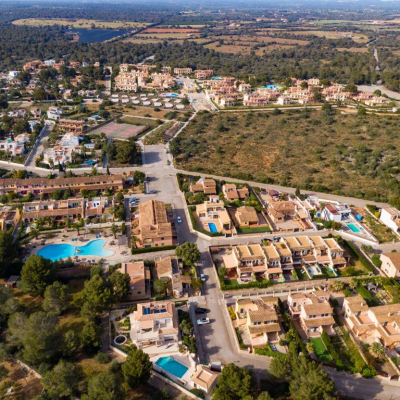Banking and money in Spain

Banking in Spain is currently undergoing a major overhaul, leading to immense layoffs, bank mergers and public panic for a country whose media image has suffered greatly in recent months. Regardless, if you're planning on living in Spain long-term, having a bank account is absolutely necessary by law. If you live in Spain for more than 183 days of a calendar year or do the majority of your business in Spain, read on.
The Spanish Financial System
Spain's financial crisis may have many roots, but the public, in general, believes that banks share a large part of the blame. Many operate on credit, which has caused a collapse in the once-booming housing market. Several banks have come under fire for their practices or have been forced to merge with other larger institutions to save its employees and clients. According to a royal decree published August 31st, 2012, a restructuring of the country's main financial institutions, overseen by the Banco de España, will be taking place over the next year to strengthen protection of assets.
Banks offer, apart from savings and other personal accounts, pension plans, insurance and, often times, trip packages.
Banking Basics
Bank hours in Spain give new meaning to the term “banker's hours.” In general, banks in Spain open around 8:00 or 8:15 and close between 14:00 and 14:30 on weekdays, closing on Saturdays and Sundays. A few national banks, such as La Caixa and Caixa Catalunya, remain open on Thursday afternoons from 17:00 until 20:00. To improve their reach and public image, some banks choose to open on Saturday mornings to better accommodate clients.
Banks are closed on all national holidays: 1 January (New Year's Day), 6 January (Epiphany), Good Friday, 1 May (Labor Day), 15 August (the Assumption), 12 October (Hispanidad Day), 1 November (All Saint's Day), 6 December (Constitution Day), 8 December (Immaculate Conception Day), 24-25 December (Christmas) and 31 December (New Year's Eve). Banks also closed on regional or local holidays.
Spain has several big-name bank institutions, including Banco Santander, Banco Popular and BBVA (Banco Bilbao Vizcaya Argentaria). There are several national banks that have offices in every main city, and smaller, regional banks and savings banks, called cajas or caixas.
It is often joked that one is never more than 500 meters from a bank, though this standard is changing with the current banking situation. Still, Spanish ATMs, called cajeros automáticos, operate under three systems: Euro 6000, 4B and Servired. In general, taking out money from your bank's network of ATMs is 100% free, and there is often a lesser charge, between 1 – 3€, for getting cash from a bank in the same network. For example, Caja Madrid belongs to Servired, along with La Caixa. Using your Caja Madrid card, you can expect a small surcharge for taking out cash at a La Caixa ATM, while using your card in one of Caja Madrid's 330 ATMs throughout the country (or even in Dublin or Lisbon!).
All major credit cards are accepted in Spain, though not every shop or bar is prepared to charge a card. It's advised to carry cash, especially when doing rural travel where ATMs are few and far between.
Many big banks will exchange foreign currency for a small charge and with a photo ID, and many bills can be paid directly to the company through a bank service during the first 15 days of the month.
Spain uses the euro. Nowadays, not many places accept the former currency used prior to 2002, the peseta. Checks are not commonly used.
How to Open an Account
Spanish banks offer many types of accounts, catering mostly to individuals and small businesses. Types of accounts include corriente (checking), ahorro (savings), and nómina (where paychecks are deposited). Many businesses opt for direct deposit into an employee's bank account.
Costs for an account and/or cards is not standardized, so be sure to shop around for the best rates (typically 20€ to open an account and 15€ or so each year for maintenance). If you're under 26 years old, fees are normally waived. Due to changing standards throughout the sector, these rules, along with the requirements for opening accounts, may fluctuate.
Resident account - Once you've received your Número de Identificación (known as a NIE), you can open a permanent account, called a cuenta de residente. Simply take in your NIE with a photocopy for the bank, and you'll get instructions on opening the account.
Foreigner account – If you're staying just short-term in Spain, a cuenta para no-residentes is a good idea. You won't be charged any fees, and the account will expire after six months. Using your passport, you can open an account easily at a neighborhood branch. Be aware that to close the account, you must go to the office where you originally opened it.
Money Abroad
Every expatriate will have a different budget, but the first months will be the most difficult as you gauge where your money will be spent and just how far it will go. Use other expats as a reference when thinking about moving abroad, as the web is abound with networking pages and social groups. Take into consideration not only housing and moving expenses, but also health care, education and utilities.
By Cat Gaa, who left her native Chicago five years ago to live in the olive groves of Andalusia. Residing in Seville, she teaches first grade at a private school, but all she wants to really do is write.
- My Life Abroad -
A selection of expat stories

"A fun compulsive read!"
J. Matcham, Amazon
"I strongly advise people ready to live abroad to read this book!"
Patrice, Amazon

 Why using an alternative broker for large money transfers
Why using an alternative broker for large money transfers Global events on real estate markets: are they connected?
Global events on real estate markets: are they connected? Fexco payment solutions
Fexco payment solutions Embassies and Consulates in Spain
Embassies and Consulates in Spain